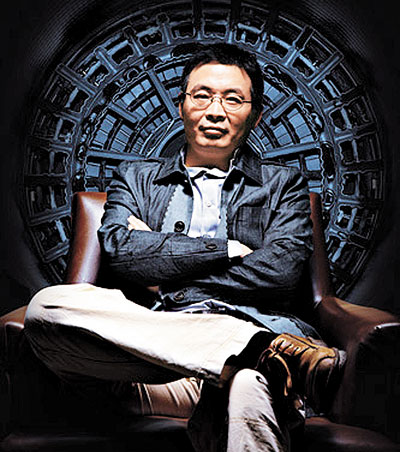|

THE New York Times has always had a reputation of not being interested in Chinese “red novelists,” but for the first time in years, the world-renowned American newspaper published a 3,000-word in-depth report Feb. 21 to highly praise a Chinese mainstream novelist, Mai Jia, and his latest spy work, “Decoded.”
In fact, several other mainstream Western media outlets, including The Wall Street Journal, The Guardian, and The Independent all published reviews of the novel, which is about to be released to American and British markets in March, saying that it was “an utterly fascinating read.”
As a top-selling Chinese espionage novelist, Mai, born in 1964, has sold millions of books and won many Chinese literary awards over the decades, including the Mao Dun Literature Prize in 2008. He is now the chairman of the Zhejiang Provincial Writers’ Association and is well-known for writing espionage stories in a revolutionary context.
Because of the numerous “spy heros” he wrote, he is also labeled as the “father of the Chinese espionage novel” and a “red mainstream novelist.” However, these labels have affected his reputation overseas. For years, his works had hardly been noticed in overseas regions, and were even denied by the United States twice.
Since last year, Mai and his works have suddenly drawn wide international attention with several major publication houses rushing to translate and introduce his books to the world. On March 18, “Decoded” will be available at bookstores across the United States and the United Kingdom.
“Decoded” is about a crypt analyst in the newly-founded People’s Republic of China. The main character, Rong Jinzhen, is an autistic math genius from an illustrious family. He is hired by a top secret military unit to break two highly advanced codes — Code Purple and Code Black, both created by China’s No. 1 enemy, which wasn’t identified.
According to The New York Times’ Adam Dean, Mai’s work has “taken on a new sense of urgency as the world adjusts to the scale of surveillance by American intelligence agencies that has been revealed by Edward Snowden.” He also highly praised Mai’s remark, “literature is a higher calling than politics.”
The Independent said that “Decoded” was “a mixture of Kafka and Agatha Christie,” while The Times Literary Supplement added that it was “a subtle and complex exploration of cryptography, politics, dreams and their significance, and it is the complexity of the characters that is its enduring pleasure.”
In Mai’s opinion, “Decoded” is so popular among Western media because they are “curious about Chinese literature.”
“The overseas media and readers have very little knowledge about current Chinese literature. They still think that Chinese literary works were mainly about rural villages and politics. So when they read my book, they were surprised. Some even thought that this was not written by a Chinese author. I think that’s why they are so interested in this book,” Mai said.
However, Mai doesn’t think that he should be labeled as an “espionage war novelist.”
“This was a misunderstanding of my works. People might have gotten this idea because some adapted dramas and movies have used the phrase for promotional purposes, but I don’t consider my characters to actually have been in a war,” he said.
Mai thinks that his works are popular because he tries to balance “literary values” and “readability.” “This trick is also my writing style. On the one hand, I read a large amount of books; on the other hand, my personal image and characters are also very suitable for writing this kind of novel,” he said.
“Decoded” is published by Farrar, Straus and Giroux (FSG) Publication in the United States. They have been called “the publication house for the Nobel Prize,” as there are currently 21 Nobel Prizers under the publication house.
However, Mai doesn’t think he has a good chance at winning a Nobel Prize. “Every novelist wants to win a Nobel Prize. It is the highest award in the literary world, and comes with high rewards. But I don’t think that I will win one in the future,” he said. “The Nobel Prize has a standard — a work can be very difficult to read but should have an unlimited illustration. My works cannot meet the standard, and I don’t think any writer will want to change his or her style in order to get an award. Writers can really only write something we are good at to satisfy ourselves.”
(Wang Yuanyuan)
Since last year, Mai and his works have suddenly drawn wide international attention with several major publication houses rushing to translate and introduce his books to the world. On March 18, “Decoded” will be available at bookstores across the United States and the United Kingdom.
|

